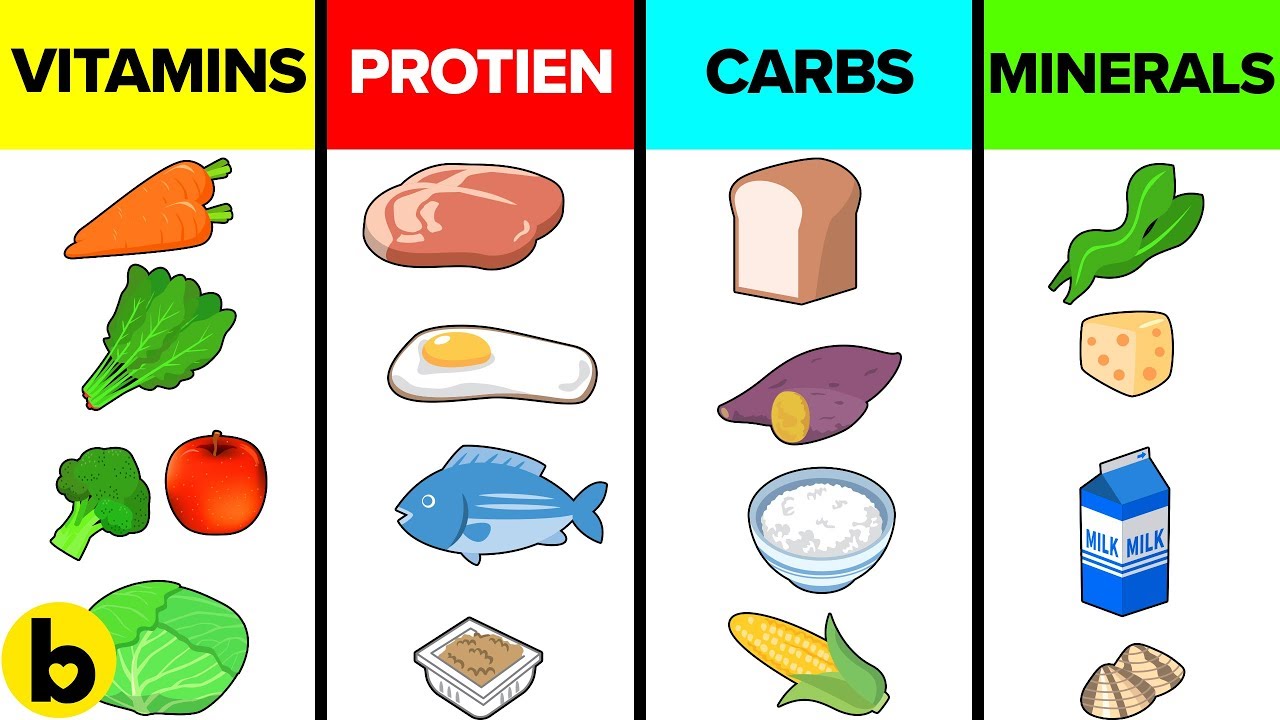Understanding the six classes of nutrients is crucial for maintaining a healthy lifestyle. Nutrients are the substances that our bodies need to function correctly, and they play a significant role in growth, development, and overall health. In this article, we will explore each of these nutrient classes in detail, their functions, sources, and the recommended daily allowances to ensure you meet your nutritional needs. Whether you are a nutrition enthusiast or just looking to improve your diet, this comprehensive guide will provide you with valuable insights into the world of nutrients.
The six classes of nutrients are carbohydrates, proteins, fats, vitamins, minerals, and water. Each class has a unique role in our body and contributes to our overall wellness. Understanding these nutrients is not just for those pursuing fitness goals, but also essential for preventing chronic diseases and maintaining optimal health. As you read on, you will discover the importance of each nutrient class and how they work together to support your body’s functions.
By the end of this article, you will have a solid understanding of the six classes of nutrients and how to incorporate them into your daily diet. With the right knowledge, you can make informed choices about your food intake, leading to a healthier and more balanced lifestyle.
Table of Contents
- 1. Carbohydrates
- 2. Proteins
- 3. Fats
- 4. Vitamins
- 5. Minerals
- 6. Water
- Daily Nutrient Requirements
- Conclusion
1. Carbohydrates
Carbohydrates are one of the primary classes of nutrients, providing the body with energy. They are broken down into glucose, which is used by the body’s cells as fuel.
Types of Carbohydrates
- Simple Carbohydrates: Found in fruits, milk, and sweeteners like sugar and honey.
- Complex Carbohydrates: Found in whole grains, legumes, and vegetables. These are considered healthier as they provide fiber and nutrients.
Functions of Carbohydrates
Carbohydrates serve several essential functions, including:
- Providing energy for daily activities and bodily functions.
- Supporting brain function and cell metabolism.
- Regulating blood sugar levels.
2. Proteins
Proteins are essential macromolecules made up of amino acids. They play a vital role in building and repairing tissues, making enzymes and hormones, and supporting immune function.
Sources of Protein
- Animal Sources: Meat, fish, eggs, and dairy products.
- Plant Sources: Beans, lentils, tofu, nuts, and seeds.
Functions of Proteins
Proteins are crucial for several bodily functions, including:
- Muscle growth and repair.
- Producing enzymes and hormones.
- Supporting immune function.
3. Fats
Fats, also known as lipids, are another essential nutrient class that provides energy, supports cell growth, and aids in nutrient absorption.
Types of Fats
- Saturated Fats: Found in animal products and some plant oils.
- Unsaturated Fats: Found in fish, avocados, nuts, and olive oil. These are considered healthier and beneficial for heart health.
- Trans Fats: Often found in processed foods and should be avoided as they can lead to health issues.
Functions of Fats
Fats serve several critical functions, including:
- Providing a concentrated source of energy.
- Supporting cell membrane structure.
- Facilitating the absorption of fat-soluble vitamins (A, D, E, and K).
4. Vitamins
Vitamins are organic compounds essential for various biochemical functions in the body. They are categorized into two groups: water-soluble and fat-soluble vitamins.
Types of Vitamins
- Water-Soluble Vitamins: Vitamin C and B vitamins.
- Fat-Soluble Vitamins: Vitamins A, D, E, and K.
Functions of Vitamins
Vitamins play numerous roles, including:
- Supporting metabolic processes.
- Acting as antioxidants to protect cells from damage.
- Enhancing immune function.
5. Minerals
Minerals are inorganic substances that are vital for various physiological functions. They are divided into major minerals and trace minerals.
Types of Minerals
- Major Minerals: Calcium, potassium, magnesium, and sodium.
- Trace Minerals: Iron, zinc, copper, and selenium.
Functions of Minerals
Minerals have essential functions, including:
- Building strong bones and teeth (calcium).
- Supporting nerve function (potassium).
- Carrying oxygen in the blood (iron).
6. Water
Water is often overlooked but is a vital nutrient. It makes up a significant portion of the human body and is necessary for various bodily functions.
Functions of Water
Water serves several critical functions, such as:
- Regulating body temperature.
- Transporting nutrients and oxygen to cells.
- Removing waste products from the body.
Daily Nutrient Requirements
The recommended daily allowances (RDAs) for each nutrient class vary based on age, sex, and activity level. Here are general guidelines:
- Carbohydrates: 45-65% of total daily calories.
- Proteins: 10-35% of total daily calories.
- Fats: 20-35% of total daily calories.
- Vitamins and Minerals: Varies by specific vitamin/mineral; consult a nutritionist for personalized advice.
- Water: At least 8 cups (2 liters) per day, depending on activity level and climate.
Conclusion
In summary, understanding the six classes of nutrients—carbohydrates, proteins, fats, vitamins, minerals, and water—is essential for maintaining a healthy lifestyle. Each nutrient plays a unique role in supporting various bodily functions and overall health. By incorporating a balanced diet rich in these nutrients, you can promote better health and well-being.
We encourage you to take charge of your nutrition by making informed dietary choices. If you have any questions or would like to share your experiences related to nutrition, please leave a comment below. Don’t forget to share this article with others who might find it helpful!
Thank you for reading, and we hope to see you back on our site for more informative articles on health and nutrition.


